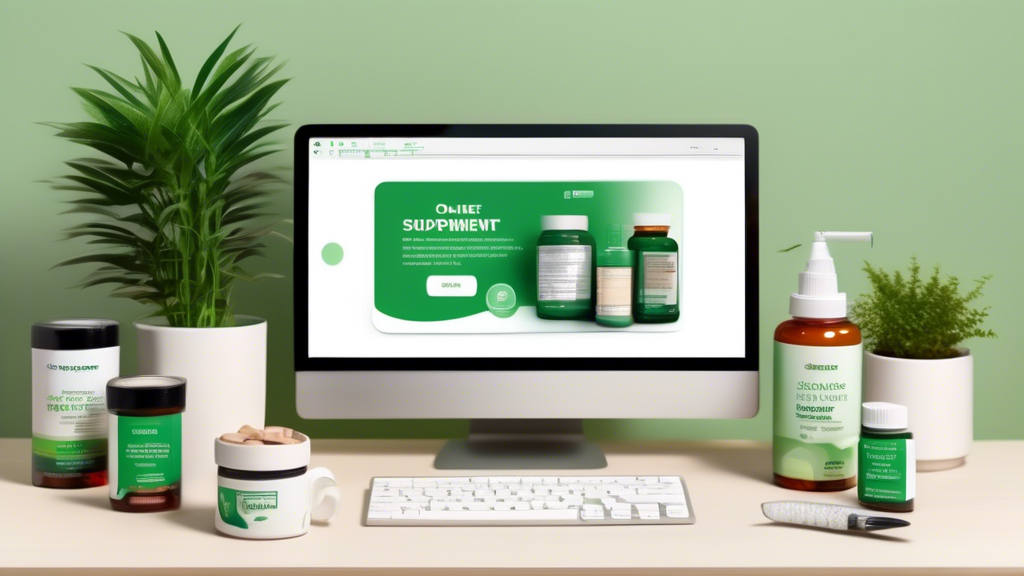Order Supplements for Cholesterol Management
Key Takeaway
Managing cholesterol is crucial for cardiovascular health. Supplements can play an important role in this process, alongside a balanced diet and regular exercise. This article explores various supplements that aid in cholesterol management, their benefits, potential side effects, and considerations for effective use.
Understanding Cholesterol Management
Cholesterol is a lipid found in your blood that is crucial for building healthy cells. However, high levels of cholesterol can increase the risk of heart disease. Cholesterol is categorized into two types: Low-Density Lipoprotein (LDL) and High-Density Lipoprotein (HDL). While LDL is often referred to as ‘bad’ cholesterol because it can lead to plaque buildup in arteries, HDL is considered ‘good’ cholesterol as it helps remove LDL cholesterol from the arteries.
Proper cholesterol management involves maintaining a balance between these two types. Lifestyle changes such as diet and exercise are the first line of defense, but supplements can also offer substantial benefits in regulating cholesterol levels.
Supplements for Cholesterol Management
Several supplements have been identified to help manage cholesterol levels effectively. Here are some of the most popular and widely researched options:
1. Fish Oil (Omega-3 Fatty Acids)
Fish oil supplements, rich in Omega-3 fatty acids, have been shown to lower triglyceride levels and can modestly impact HDL and LDL cholesterol levels. Omega-3 fatty acids help reduce inflammation and improve overall heart health.
Benefits: Lower triglycerides, reduce plaque build-up, improve heart health.
Potential Side Effects: Fishy aftertaste, gastrointestinal issues.
2. Plant Sterols and Stanols
Plant sterols and stanols are compounds found in plants that resemble cholesterol. They compete with cholesterol for absorption in the digestive system, which can help lower LDL cholesterol.
Benefits: Lower LDL cholesterol without affecting HDL cholesterol levels.
Potential Side Effects: May cause gastrointestinal discomfort in some individuals.
3. Fiber Supplements
Soluble fiber can bind with cholesterol in the intestines, preventing it from being absorbed. Fiber supplements like psyllium and beta-glucan (found in oats) are beneficial in lowering cholesterol levels.
Benefits: Lower LDL cholesterol, improve digestive health, promote satiety which can aid in weight management.
Potential Side Effects: Bloating, gas, and abdominal discomfort.
4. Niacin (Vitamin B3)
Niacin, a form of Vitamin B3, is known to significantly lower LDL cholesterol and triglycerides, while raising HDL cholesterol levels.
Benefits: Lower LDL and triglycerides, raise HDL cholesterol.
Potential Side Effects: Flushing, itching, gastrointestinal issues. High doses can lead to liver damage.
5. Red Yeast Rice
Red yeast rice contains monacolin K, which is chemically similar to the active ingredient in prescription statins used to lower cholesterol. It is effective in lowering LDL cholesterol.
Benefits: Significant reduction in LDL cholesterol.
Potential Side Effects: Muscle pain, digestive issues, and liver toxicity, especially when taken in high doses.
6. Coenzyme Q10 (CoQ10)
CoQ10 is an antioxidant that helps produce energy in your cells. Statin drugs, commonly used to lower cholesterol, can reduce CoQ10 levels in the body. Supplementing with CoQ10 can help address this deficiency and improve overall heart health.
Benefits: Mitigates statin-related side effects, supports cardiovascular health and energy production.
Potential Side Effects: Generally well-tolerated, but can cause mild stomach upset and headache.
7. Garlic Supplements
Garlic has been used for its medicinal properties for centuries. Some studies suggest that garlic supplements can moderately lower total cholesterol and LDL cholesterol levels.
Benefits: Lower total cholesterol and LDL cholesterol, anti-inflammatory and immune-boosting properties.
Potential Side Effects: Breath and body odor, gastrointestinal issues, potential blood-thinning effects.
Choosing the Right Supplement
When deciding on a supplement for cholesterol management, it’s essential to consider the following factors:
- Consult with your healthcare provider to ensure the supplement is appropriate for your individual health needs and won’t interact with any medications you are currently taking.
- Look for products that have been third-party tested for quality and purity, to ensure you are getting a product free from contaminants and accurate in dosage.
- Start with the recommended dosage on the supplement label unless advised otherwise by your healthcare provider.
- Monitor your cholesterol levels regularly to assess the effectiveness of the supplement.
Potential Risks and Side Effects
While supplements can be beneficial, they are not without their risks and potential side effects. Overdosing on certain vitamins and minerals can have adverse effects. For example, high doses of niacin can lead to liver damage, while excessive fish oil intake can increase bleeding risk. Always adhere to recommended dosages and consult with a healthcare provider before initiating any new supplement regimen.
Integrating Supplements with Lifestyle Changes
Supplements should not be seen as a replacement for a healthy lifestyle but rather as a complement to it. For maximum effectiveness in managing cholesterol levels:
- Maintain a diet rich in fruits, vegetables, whole grains, and lean proteins. Foods high in soluble fiber, such as oats, beans, and legumes, are particularly beneficial.
- Engage in regular physical activity, such as brisk walking, swimming, or cycling, to help improve cardiovascular health.
- Avoid smoking and limit alcohol consumption.
- Manage stress through techniques such as mindfulness, yoga, or meditation, as stress can negatively impact cholesterol levels.
Conclusion
Managing cholesterol is vital for reducing the risk of heart disease and improving overall health. Supplements can provide a valuable addition to lifestyle changes in achieving and maintaining healthy cholesterol levels. However, it’s crucial to approach their use with care, ensuring doses are appropriate and potential interactions are considered. Always consult with a healthcare provider to develop a comprehensive plan tailored to your individual health needs. With the right combination of diet, exercise, and supplementation, you can effectively manage your cholesterol and promote long-term health.

